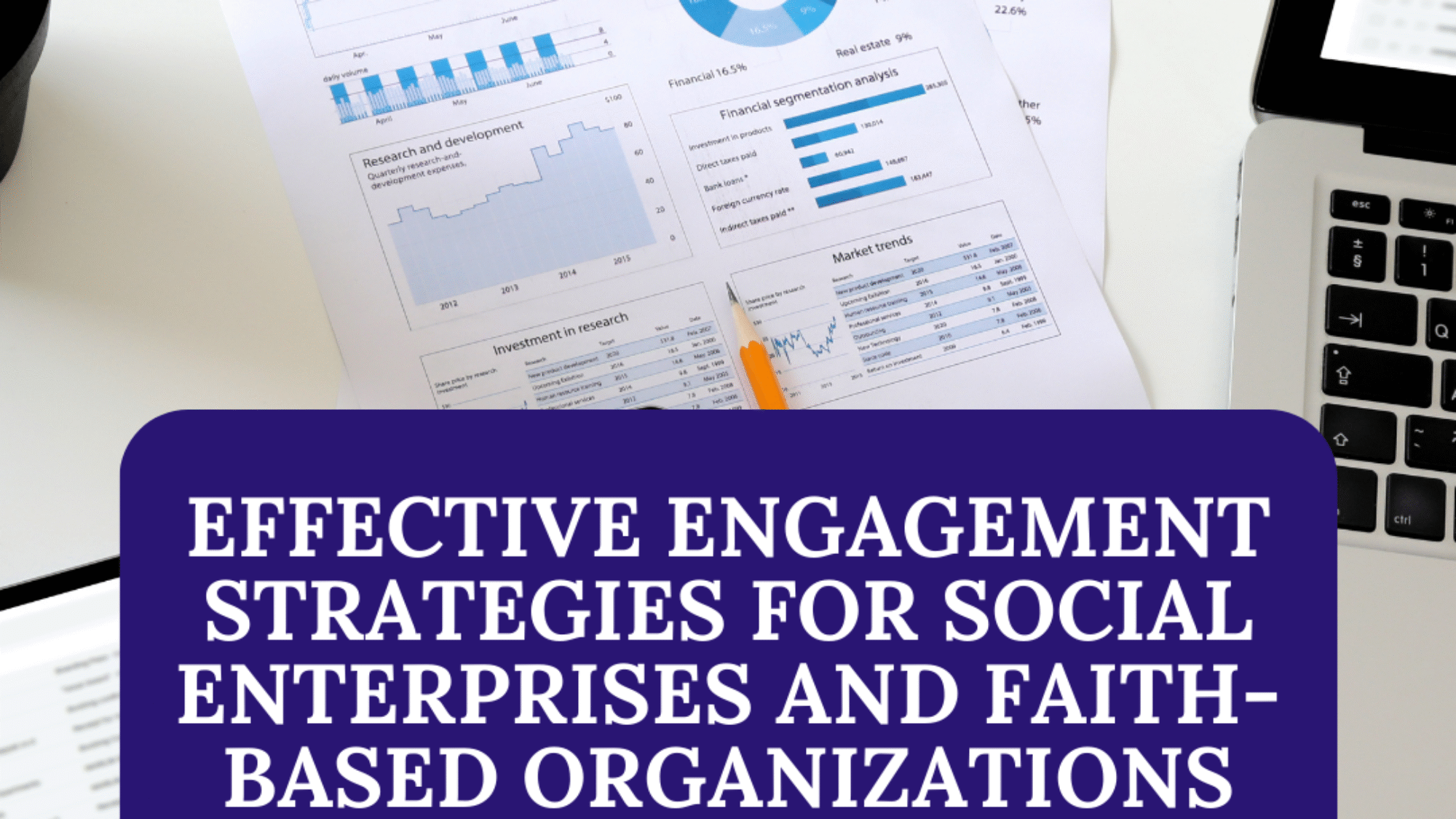If you are a social enterprise dedicated to social good or a faith-based community nurturing spiritual growth, then you know that connecting with your community, creating a sense of belonging, and driving positive change is essential.
Effective engagement strategies can help you build relationships with your community members, promote your values, and further your mission. Engaging with your community can build a loyal customer base and achieve your social goals if you are a social enterprise.
On the other hand, if you are a faith-based community, engagement can help you foster spiritual growth and build strong relationships among members. Whether you belong to a social enterprise or a faith-based community, implementing effective engagement strategies can help you create a sense of community and drive positive change.
In this regard, we will be looking at effective engagement strategies that you can implement to achieve your goals.
Effective Engagement Strategies for Social Enterprises and Faith-Based Organizations
1. Clearly Define Your Mission
A clear and concise mission statement is the bedrock of any community engagement strategy. Ensure that your mission statement is written in a way that is easy to understand by everyone. Avoid using technical jargon that may confuse your audience. Share stories about how your work is making a positive impact in people’s lives to make it more relatable.
2. Improve Your Online Presence
In today’s digital age, having a strong online presence is critical for community engagement. Create a website that is visually appealing, easy to navigate, and mobile-friendly. Regularly update your website with new stories, images, and testimonials. Use social media to amplify your message and connect with your audience.
3. Be Specific About Your Goals
Setting specific and measurable goals is essential for effective community engagement. Clearly explain how contributions and participation will create a meaningful impact. Set realistic timelines for achieving your goals, and celebrate milestones along the way.
4. Develop a Structured Engagement Plan
A structured engagement plan is essential for building a sense of belonging and involvement within your community. Develop programs and activities that encourage participation and engagement. Provide opportunities for members to take on leadership roles within the community. Regularly assess the impact of your engagement plan and make adjustments as needed.
5. Leverage Digital Channels
Digital channels such as social media, email, and messaging platforms are powerful tools for community engagement. Use these channels to communicate your message to a wider audience. Personalize your communication to create a more profound connection with your audience. Use analytics to track the performance of your digital channels and improve your engagement strategy.
6. Encourage Dialogue and Participation
Creating an environment where open and meaningful conversations can flourish is important for community engagement. Encourage dialogue and feedback to promote a sense of community involvement. Organize events and activities that encourage participation and interaction. Be open to new ideas and feedback, and use them to improve your engagement strategy.
7. Collaborate with Like-Minded Organizations
Collaborating with other organizations that share your mission and values is a powerful way to amplify your collective impact. Partner with organizations to develop joint initiatives and programs. Work together to achieve common goals and objectives. Share resources and best practices to improve the effectiveness of your engagement strategy.
8. Empower Your Community Members
Empowering your community members to become advocates for your mission is crucial for long-term engagement. Encourage members to share their experiences and stories with others. Provide opportunities for members to take on leadership roles within the community. Celebrate the achievements of your members and show appreciation for their contributions.
9. Show Appreciation
Showing appreciation for your community members is essential for building a strong and loyal community. Use social media shoutouts, personalized thank-you emails, or handwritten notes to acknowledge the contributions of your members and volunteers. Celebrate milestones and achievements together. Consider hosting an annual appreciation event to recognize the efforts of your community members.
10. Regularly Assess Your Engagement Strategies
Regularly assessing the performance of your engagement strategies is essential for continuous improvement. Use feedback from your community members to enhance your strategies and improve engagement. Continuously adapt to the changing needs and preferences of your community. Use analytics and data to track the impact of your engagement strategy, and make adjustments as needed.
Conclusion
Effective engagement is crucial for social enterprises and faith-based communities to make a lasting impact. These strategies are designed to simplify the process, help you deepen connections, amplify your mission, and create positive change. By nurturing engagement, sharing your stories, and transforming lives, you can build a community that’s dedicated to your cause.
Remember, engagement is a journey, not a one-time event. It’s a continuous process that requires consistent effort and attention. With these proven strategies, you can create a sustainable engagement plan that will help you connect with your audience, build trust, and achieve your goals.


